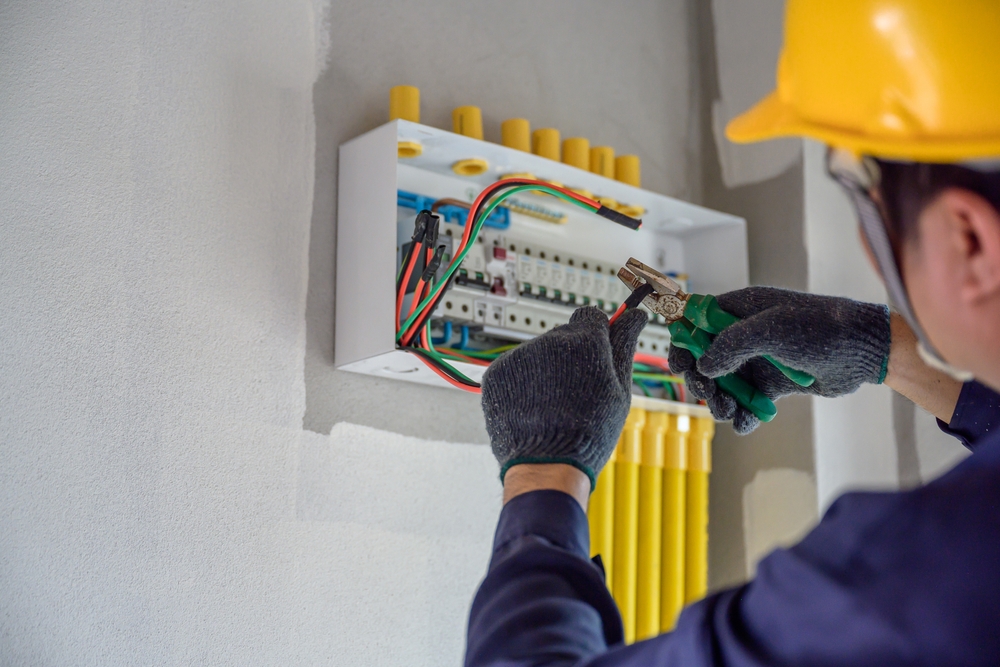Whether building houses, in industry or carrying out repairs in the home - electricians ensure that everything runs smoothly. They install, maintain and repair electrical systems. Their work ensures safety and reliability in all areas. Without their daily work, many things would come to a standstill. But what do they earn on average and what factors influence their earnings?

An Overview of Electrician Salaries in Australia
In Australia, the salary of electricians is influenced by various factors, including the level of experience, industry demand, location, and type of employment. On average, electricians can expect to earn a competitive wage, which makes this trade a popular career choice for many.
According to a report from AroFlo, entry-level electricians typically start with salaries ranging from AUD 50,000 to AUD 70,000 per year. As they gain more experience and expertise, their annual earnings can rise significantly. Experienced electricians, particularly those in specialized roles, can earn in the range of AUD 80,000 to AUD 120,000 or even more annually.
Factors Affecting Electrician Salaries
The salary of an electrician in Australia is dependent on several key factors:
- Experience Level: Experience is one of the most significant influencers of an electrician's salary. Entry-level electricians often start with lower salaries, but as they gather on-the-job experience, they see substantial salary increases.
- Specialization: Specializations such as high voltage or industrial electricians are in high demand and often command higher salaries. For instance, a FIFO high voltage electrician generally earns more due to the specialized skills required.
- Location: Geographical location also plays a crucial role. Electricians in metropolitan areas or regions with higher costs of living, like Sydney or Melbourne, may receive higher pay compared to those in rural areas.
- Industry Sector: Different industries offer varying pay scales. For example, electricians working in the mining or construction sectors might earn more than those in residential or commercial sectors due to the complexity and scale of projects involved.
How Much Does an Electrician Earn Per Month?
The monthly earnings for electricians provide a clearer picture of their take-home pay, which can differ based on several aforementioned factors. On average, electricians in Australia earn approximately AUD 6,250 to AUD 10,000 per month.
For entry-level positions, monthly earnings might start at around AUD 4,166, which increases significantly with experience. Seasoned professionals, particularly those with specialized skills, might bring home a monthly paycheck of over AUD 10,000. Specific roles, such as those in senior supervisory positions or with additional responsibilities, might see even higher monthly earnings.
Role of Certification and Training
Certification and ongoing training are critical in ensuring higher salaries for electricians. As professionals become certified or undertake specialized training, they position themselves for salary increments. Electricians who pursue additional certifications, such as a Level 2 Certificate, can often command a higher salary due to their ability to handle more complex electrical tasks.
The importance of continuous upskilling cannot be overstated. With the rapid advancement in technology, electricians who continually update their skills are often more sought after and can demand higher salaries.
The Impact of Industry and Market Demand
In sectors such as mining, oil, gas, and advanced manufacturing, the demand for qualified electricians is robust. Industries with these demands often offer competitive salaries to attract and retain top talent. According to the Australian Government's Jobs and Skills website, there has been a steady increase in demand for skilled electricians, resulting in better job security and salary prospects.
Comparing Salaries Across Companies
There is also variability in salaries depending on the company size and reputation. A look at some company-specific data shows how employee salaries can differ. For example, electricians working at prominent firms like Fortescue Metals Group might enjoy competitive salary packages, reflecting company performance and specializations. For precise figures, visit glassdoor for up-to-date salary insights.
Future Trends and Opportunities
The future for electricians in Australia looks promising, with increasing emphasis on sustainable energy and technological advancements necessitating a new wave of electrical skills. As the industry evolves, electricians with new skill sets related to renewable energy and smart technologies will find themselves in high demand and potentially commanding higher salaries.
The focus on green buildings, renewable energy installations, and energy-efficient systems will likely create new roles and areas of specialization within the field, leading to more dynamic and potentially lucrative career paths for electricians.
Conclusion
Understanding electrician salaries in Australia involves looking at various elements like experience, location, industry demand, and specialization. For anyone considering this career path, the prospects are promising, with competitive salaries and the potential for growth and specialization. As the industry evolves, staying informed about training opportunities and market trends will be critical for maximizing career and salary potential.
As we've explored, there are numerous factors influencing the salary prospects for electricians, from certification and specialization to the industry segment. With careful career planning and commitment to skill enhancement, an electrician in Australia can expect a rewarding and financially sustainable career.



